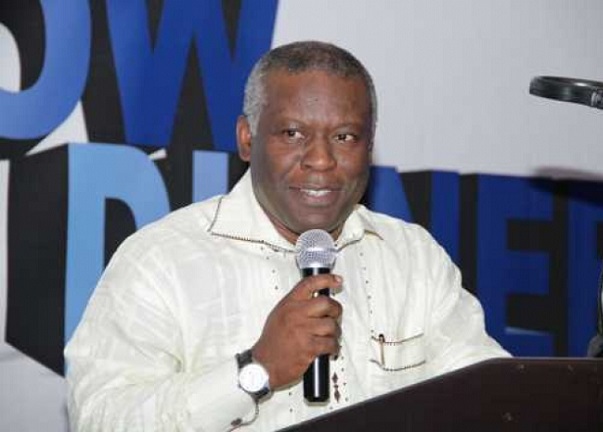The new opportunities are expected to add new oil reserves that will extend the production life of the company in Ghana.
The Managing Director of Tullow Ghana Limited, Mr Charles Darku told investors in Accra that a significant resource base underpinned future production, hence the decision by the company to roll back some investments into new exploration activities.
“We are looking to roll back some investments into exploration. We are looking at two areas with respect to that. One of them is to look for additional reserves within our block.”
“We are working with the government to get the necessary license to do some more exploration in our own block and we are also looking at opportunities in neighbouring countries,” he said.
Mr Darku explained that discussions with the government for the year would be focused on this.
“A big part of what we will be doing and discussing with the government this year will be on additional new explorations, additional investments and of course growing our business,” he said.
No dividend
The oil company, for the third time, did not pay dividend to its shareholders. The shareholders, who were visibly unhappy with the decision by the company, did not mince words in pouring out their displeasure at the forum.
The Group CEO of Tullow Oil, Mr Paul McDade, however, explained that the board assesses the dividend policy every year and determines whether it was appropriate to continue paying or not.
He said while noting the concerns of shareholders, the board would meet at the end of 2017 to look at the issue of paying dividends.
“The board will assess the performance of the company at the end of 2017 and decide what to be paid if any dividend is to be paid,” he said.
The Chairman of Tullow Ghana, Mr Ike Duker said the non-payment of dividend was occasioned by the volatility of oil prices and its impact on operations of players in the industry.
Tullow, he said, was looking at how the industry would recover and oil prices pick up so it can reinstate the payment of dividends.
TEN on stream
First oil from the Tweneboa- Enyera- Ntomme (TEN) field – Tullow’s second major project in Ghana – was delivered in August last year on time and within budget.
Mr Darku said bringing TEN on stream continued to build high-margin,which is long life cash flow for the company in Ghana.
The company is projecting that the TEN field would end the year with an average gross production forecast of 50,000 barrels of oil per day (bopd), lower than its plateau production rate of 80,000 bodp.
He said while the maritime dispute had placed a ban on drilling of new wells, the company was preparing itself to recommence drilling in 2018, pending the ITLOS boundary decision later this year.
“TEN is in the area where we have the maritime dispute with Cote d Ivorie. It is a dispute between two governments. As a result of that and the moratorium that has been placed on drilling, we have not been able to drill new wells since production started. We are looking at resuming drilling as soon as ruling is given, hopefully in Ghana’s favour,” he said.
Jubilee Field production
Temporary measures put in by the company to address the challenge with the turret bearing on the Floating Production Storage Production (FPSO) vessel, Kwame Nkrumah, is aiding oil production to progress smoothly.
Mr Darku said aside the planned outage later this year, which was expected to affect production, the capacity of the Jubilee Field FPSO had not been impacted by the turret bearing challenge.
“On Tuesday (May 17), we produced 100,000 barrels of oil, the capacity is still the same and production itself would not be impacted. We will end the year with the 68,000 barrels per day,” he said.
Source: Daily Graphic


